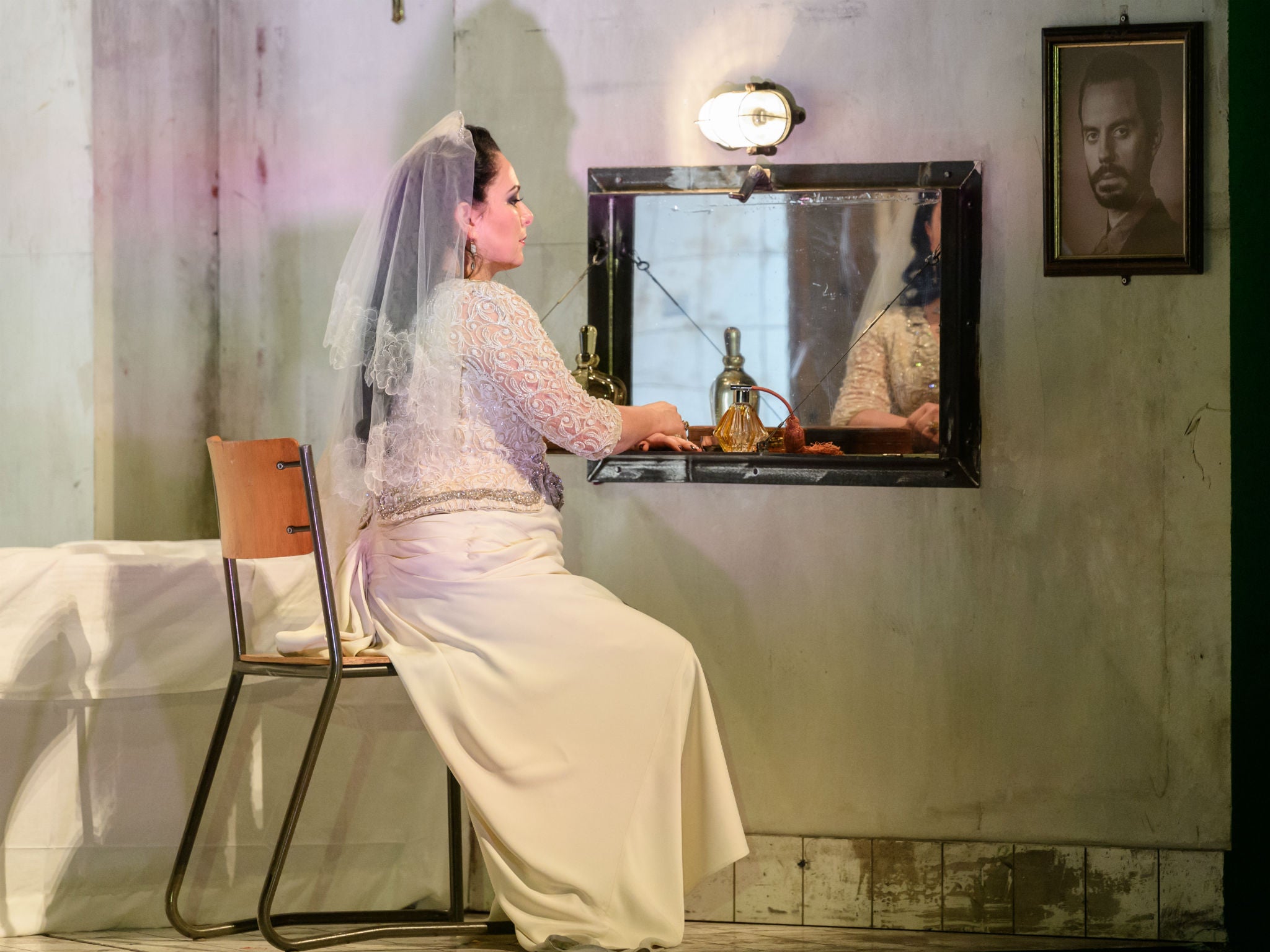Rodelinda, Coliseum, London, review: Rebecca Evans as Rodelinda delivers her solos with consummate control
Director Richard Jones's 2014 production of Handel's opera is revived

Your support helps us to tell the story
From reproductive rights to climate change to Big Tech, The Independent is on the ground when the story is developing. Whether it's investigating the financials of Elon Musk's pro-Trump PAC or producing our latest documentary, 'The A Word', which shines a light on the American women fighting for reproductive rights, we know how important it is to parse out the facts from the messaging.
At such a critical moment in US history, we need reporters on the ground. Your donation allows us to keep sending journalists to speak to both sides of the story.
The Independent is trusted by Americans across the entire political spectrum. And unlike many other quality news outlets, we choose not to lock Americans out of our reporting and analysis with paywalls. We believe quality journalism should be available to everyone, paid for by those who can afford it.
Your support makes all the difference.Those who saw Jean-Marie Villégier's Glyndebourne production of Rodelinda in 1998 have been spoilt for all subsequent productions: it wasn’t only the fact that counter-tenor Andreas Scholl was making his mind-blowing British operatic debut in the male lead, it was also the Fascist-Italian art-deco designs, which had a surpassingly assured elegance. Richard Jones’s 2014 production of Handel’s great opera, now revived, is also set in Fascist Italy, but there the parallels stop: nothing could be more different than the way Jones sets up his story.
Or rather, doesn’t set it up: we need to understand that Bertarido, whose throne has been usurped by Grimoaldo, has fled abroad leaving behind his wife Rodelinda, son Flavio, and sister Eduige; that he has circulated false reports of his death, and is returning in disguise; and that he finds his wife’s sexual fidelity under siege from the usurper.
The limp little charade enacted during the overture communicates nothing more than that a mother and her son are pursued and caught, and the curtain goes up on two scruffy interconnected rooms – Grimoaldo spying via CCTV in one room on his victims in the other – where too many kinds of violent business are going on for us to tell what actually is going on. The prevailing mode is an irritating brand of humour reminiscent of Armando Iannucci’s over-hyped The Death of Stalin: some of Handel’s loveliest airs are scuppered by OTT clowning, and there are times when the performers seem to be sending up their own parts. Tattoos indicating who is obsessed with whom are a gimmick which wears thin.
But gradually the production clarifies, and allows the manifold beauties of the music to flower. Tenor Juan Sancho makes a mellifluous Grimoaldo, and counter-tenor Christopher Lowrey an engaging Unolfo, while bass Neal Davies is vocally and physically commanding in the baddie role of Garibaldo. In counter-tenor Tim Mead as Bertarido, and soprano Rebecca Evans as Rodelinda, the central roles are gorgeously taken. Mead’s singing has found new fire and purity, while Evans delivers her solos with consummate control: the lilting grace of her ‘Ritorna, o caro’ seems to magic up the stunning beauty of the duet which follows her husband’s return. And from that point on Jones’s production never falters, the stage transforming itself again and again to match the character of the score which, thanks to Christian Curnyn’s direction in the pit, runs the gamut with magisterial ease from tempestuousness to the most exquisite tenderness.
'Rodelinda' is at the Coliseum in London from 1 to 15 Nov (eno.org)
Join our commenting forum
Join thought-provoking conversations, follow other Independent readers and see their replies
Comments